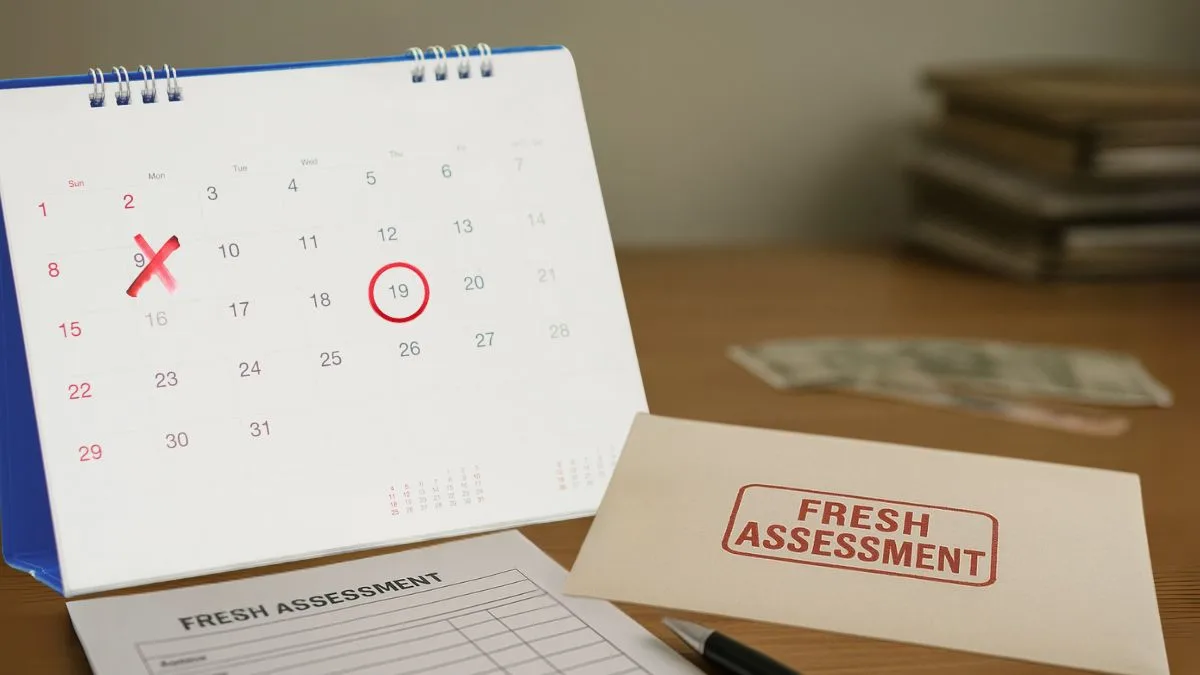
Timely completion of assessments is the backbone of any tax system. Without a fixed deadline, taxpayers and the department would face endless uncertainty, leading to disputes & administrative delays. To tackle this, the Income Tax Act, 1961 prescribes clear timelines for assessments and reassessments.
Among these, Section 153(3) plays a critical role. It outlines specific circumstances where an order of fresh assessment cannot be passed because the limitation period has expired. This ensures both efficiency and fairness, preventing the reopening of cases indefinitely.
What is Section 153 of the Income Tax Act?
Section 153 as a whole deals with the time limit for completion of assessment, reassessment, and recomputation of income. It provides deadlines within which the Assessing Officer must complete different types of proceedings.
- For regular assessments, the law provides a fixed period from the end of the assessment year.
- For reassessments or recomputation, additional timelines are prescribed depending on the circumstances."
This provision balances the need for tax collection with the taxpayer’s right to certainty.
Specific Role of Section 153(3)
Section 153(3) comes into play when an appellate authority or court directs a fresh assessment or when reassessment is required.
It states that in certain cases, the passing of fresh assessment order is barred under Section 153(3) if the prescribed period has expired.
This ensures that even if appeals are ongoing, the tax department cannot keep the assessment pending indefinitely. Once the limitation period passes, the case is closed from the assessment side.
Also Read: Time Limit for Completion of Assessments, Reassessments, and Recomputation
An Order of Fresh Assessment Under Section 153(3)
When higher authorities such as:
- The Commissioner of Income Tax (Appeals),
- The Income Tax Appellate Tribunal (ITAT),
- High Court or Supreme Court,
direct a fresh assessment, the Assessing Officer must act within the prescribed timelines.
If the officer fails to issue the fresh assessment order within this period, then the order becomes barred by limitation, and no further assessment can be passed.
This is one of the strongest taxpayer protections under the Act.
Example of Section 153(3) in Practice
Suppose Mr. Sharma’s case for AY 2019–20 was reopened & went to the ITAT. The ITAT directed a fresh assessment on 1st March 2023.
- The Assessing Officer is required to pass the new order within the timeline defined under Section 153(3).
- If the officer delays beyond this period, an order of fresh assessment is barred under Section 153(3).
- Mr. Sharma cannot be asked to face another round of proceedings after the deadline expires.
This shows how the section provides finality & prevents harassment.
Importance of Timelines in Assessments
The Income Tax Act outlines strict timelines because:
- Taxpayers need certainty regarding their liabilities.
- Endless reassessments discourage investment & business activity.
- Timely proceedings improve the efficiency of the tax department.
- It reduces litigation and ensures fair play between the department & taxpayers.
Section 153(3) is a crucial safeguard in this framework.
Also Read: Hidden Assessments You Should Know About
Key Features of Section 153(3)
- Applies to fresh assessments, reassessments, and recomputations as directed by higher authorities.
- An order of fresh assessment is barred if not completed within the prescribed period.
- Ensures that Assessing Officers adhere to strict deadlines."
- Provides certainty to taxpayers by closing cases once limitation expires.
Relation with Appeals and Revisions
When appellate authorities direct recomputation or reassessment, Section 153(3) ensures the Assessing Officer completes the task on time.
- If a fresh assessment is ordered, the officer must act within the specified period.
- If not, the taxpayer is protected from further proceedings.
Thus, it balances appellate remedies with the department’s power to reassess.
Compliance Impact for Taxpayers
For taxpayers, Section 153(3) provides:
- Clarity – once the limitation period expires, they cannot be dragged back for the same assessment year.
- Relief – prevents harassment through repeated proceedings.
- Certainty – ensures tax planning & closure of past matters.
For the tax department, it imposes discipline & accountability.
Real-Life Case Reference
In many cases, courts have upheld that if the Assessing Officer misses the deadline under Section 153(3), the assessment becomes invalid.
For example, where reassessments were delayed beyond limitation, tribunals have struck them down as time-barred.
This judicial backing makes Section 153(3) one of the most taxpayer-friendly provisions in the Act.
Also Read: When a Tax Search Can Rewrite Your Past 6 Years of ITRs
Key Points to Remember
- Section 153(3) sets time limit for completion of assessment, reassessment & recomputation.
- Protects taxpayers by barring fresh assessment orders after limitation expires.
- Applies to directions from appellate authorities or courts."
- Provides finality & certainty in tax proceedings.
- Reinforced by judicial pronouncements, making it a strong safeguard.
Conclusion
Section 153(3) of the Income Tax Act ensures that assessments & reassessments are completed within strict timelines. By clarifying that the passing of fresh assessment order is barred under Section 153(3) after the deadline, it protects taxpayers from indefinite proceedings.
The provision highlights the principle that justice delayed is justice denied—tax certainty is as important as tax collection. For businesses & individuals alike, knowing these rules helps safeguard their rights during assessments and appeals.
👉 Want to check if your assessment or reassessment is time-barred under Section 153(3)? Visit Callmyca.com today and let our experts review your case before you take the next step.











